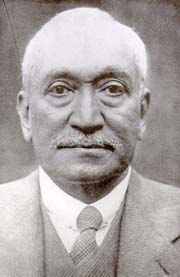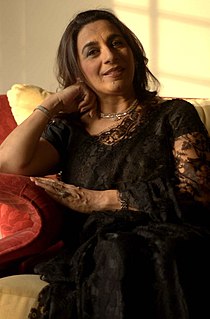
Islam is the second-largest religion in India, with 14.2% of the country's population, approximately 172.2 million people identifying as adherents of Islam in 2011 Census. India is the country with the second or third largest number of Muslims in the world. The majority of Indian Muslims belong to the Sunni sect of Islam, while the Shia form a sizeable minority. Islam existed in Indian communities along the Arab coastal trade routes in Gujarat, and Malabar as soon as the religion originated and had gained early acceptance in the Arabian Peninsula. Islam arrived in the inland of Indian subcontinent in the 7th century when the Arabs conquered Sindh and later arrived in North India in the 12th century via the Ghurids conquest and has since become a part of India's religious and cultural heritage. The Barwada Mosque in Ghogha, Gujarat built before 623 CE, Cheraman Juma Mosque in Methala, Kerala and Palaiya Jumma Palli in Kilakarai, Tamil Nadu are three of the first mosques in India which were built by seafaring Arab merchants. According to the Legend of Cheraman Perumals, the first Indian mosque was built in 624 AD at Kodungallur in present-day Kerala with the mandate of the last the ruler of Chera dynasty, who converted to Islam during the lifetime of Prophet Muhammad. On a similar note, Tamil Muslims on the eastern coasts also claim that they converted to Islam in Muhammad's lifetime. The local mosques date to the early 700s.

Abdullah Yusuf Ali, CBE, MA, LL.M, FRSA, FRSL was an Indian-British barrister and Muslim scholar who wrote a number of books about Islam including a translation of the Qur'an. A supporter of the British war effort during World War I, Ali received the CBE in 1917 for his services to that cause. He died in London in 1953.

Islam is now the second largest religion in the United Kingdom of Great Britain and Northern Ireland, with results from the United Kingdom 2011 Census giving the UK Muslim population in 2011 as 2,516,000, 4.4% of the total population, while more recent Office of National Statistics sources have it in 2018 as 3,372,966 in Great Britain alone. The vast majority of Muslims in the United Kingdom live in England: 2,660,116. 76,737 Muslims live in Scotland (1.45%), 45,950 in Wales (1.50%). London has the greatest population of Muslims in the country. The vast majority of Muslims in United Kingdom adhere to Sunni Islam, while smaller numbers are associated with Shia Islam.

Lieutenant-Colonel Sir Malik Khizar Hayat TiwanaKCSI, OBE was an Indian statesman, army officer, and landowner who served as the Unionist prime minister of the Punjab Province of British India between 1942 and 1947.
British Iraqis are British citizens who originate from Iraq.
The Silk Letter Movement refers to a movement organised by Deobandi leaders between 1913 and 1920, aimed at gaining Indian independence from British rule by forming an alliance with the Ottoman Empire, the Emirate of Afghanistan and the German Empire. This plot was uncovered by the Punjab CID with the capture of letters from Ubaidullah Sindhi, one of the Deobandi leaders then in Afghanistan, to Mahmud Hasan Deobandi, another leader then in Hejaz. The letters were written on silk cloth, hence the name.
Zafar Ishaq Ansari was a scholar of Islamic Studies. He was the Director General of the Islamic Research Institute of the International Islamic University. Previously, he was the President of the International Islamic University Islamabad.
Scottish Asian is a term defined within the 2011 Scottish census as including people of Bangladeshi, Chinese, Indian, Pakistani or other Asian ancestry resident in Scotland. Their parents or grandparents are normally Asian immigrants. It can also refer to people who are of dual Scottish and Asian ancestry. It combines Asian ethnic background with Scottish national identity.

The English Defence League (EDL) is a far-right, Islamophobic organisation in the United Kingdom. A social movement and pressure group that employs street demonstrations as its main tactic, the EDL presents itself as a single-issue movement opposed to Islamism and Islamic extremism, although its rhetoric and actions target Islam and Muslims more widely. Founded in 2009, its heyday lasted until 2011, after which it entered a decline.

Turks in London or London Turks refers to Turkish people who live in London, the capital city of the United Kingdom. The Turkish community in the United Kingdom is not evenly distributed across the country. As a result, the concentration of the Turks is almost all in Greater London. The Turks have created Turkish neighbourhoods mostly in North and North-East London however there are also Turkish communities in South London and the City of Westminster.

Islam in Uttar Pradesh is the second largest religion in the state with 38,483,967 adherents, forming 19.26% of the total population as per the 2011 census. Muslims of Uttar Pradesh have also been referred to as Hindustani Musalman. They do not form a unified ethnic community, but are differentiated by sectarian and Baradari divisions, as well as by language and geography. Nevertheless, the community shares some unifying cultural factors.
Zafar Shahaan Ansari is a former English cricketer who played for Surrey County Cricket Club and the England national team. A spin-bowling all-rounder, he bowled left-arm orthodox spin, and batted left-handed. He now works for the charity Inquest.
South Asians in the United Kingdom have been present in the country since the 17th century, with significant migration occurring in the mid-20th century. They originate primarily from eight sovereign states in South Asia which are, in alphabetical order, the countries of Afghanistan, Bangladesh, Bhutan, India, Nepal, Pakistan, and Sri Lanka. There is also a history of migration of diasporic South Asians from Africa and Southeast Asia moving to, and settling in, the United Kingdom.
Zafar is a Persian origin name meaning "victory" or "victor".
British Pakistanis are citizens or residents of the United Kingdom whose ancestral roots lie in Pakistan. This includes people born in the UK who are of Pakistani descent, Pakistani-born people who have migrated to the UK and those of Pakistani origin from overseas who migrated to the UK. The majority of British Pakistanis originate from the Azad Kashmir and Punjab regions, with a smaller number from other parts of Pakistan including Sindh, Khyber Pakhtunkhwa and Balochistan.
Ansari or Al Ansari is a typically Muslim surname mainly found in the Middle East and South Asia. People with the surname Al-Ansari or Ansari are said to be the descendants of the Ansar tribesmen of Medina. Notable Ansaris include:

Durdana AnsariOBE is a British entrepreneur, public speaker and activist for female empowerment. She is a former charity director, journalist, presenter and producer at the BBC World Service. She has interviewed politicians, Kashmir earthquake victims, Afghan refugees, Bollywood and Pakistani actors, artists, film directors and poets, and received an Order of the British Empire in 2012 for creating economic development program for Muslim women. She serves as a Brand Ambassador to Mirpur University of Science & Technology (MUST), the Swat Relief Initiative (SRI), and as a trustee for ‘Quest for Education’ (QFE).







